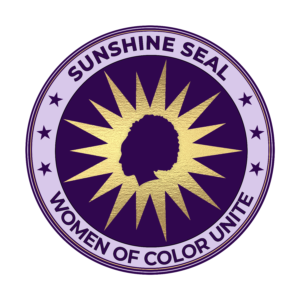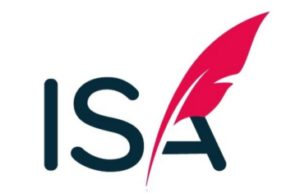SCREENWRITING CONTEST TRANSPARENCY INITIATIVE
We demand transparency and accountability in TV and feature film screenwriting competitions, labs, fellowships, and coverage services.
In June 2021, a member of Women of Color Unite asked fellow members about their experiences using screenwriting services like The Black List and Coverfly. This spurred a number of sub-threads about the quality of coverage and notes our members had received from these paid services, leading to larger questions about professional reader demographics and larger Hollywood diversity and inclusion issues.
We realized a Call To Action could help address the multi-layered issues surrounding diversity and inclusion in the film industry, and gained the support of WOCU founder Cheryl Bedford. We’re honored for the support of so many allies.
Dani Milton, Julia Morizawa and Via Bia
Women of Color Unite Members
Call for Transparency
Our demands for screenwriting contests, labs, fellowships, etc.
We demand transparency and accountability in TV and feature film screenwriting competitions, labs, fellowships, and coverage services. This includes making information about the demographics of readers and the judging process readily available, as well as requiring readers to receive sensitivity training. These steps will allow writers to make informed decisions regarding which competitions to enter and services to use. Additionally, we hope that these steps will decrease the odds of readers’ critiques coming from a lack of cultural competency, or worse, racist, sexist, homophobic or otherwise biased perspectives.
Below is a list of solutions, which are first steps towards TV and feature film writing organizations being more inclusive, thereby expanding media representation to reflect the diversity of our world.
We specifically demand the following be put in place:
- These organizations must issue an annual “Statement of Transparency”
- Readers must undergo implicit bias and sensitivity training prior to reading for contests, fellowships, labs, and other TV and screenwriting programs and/or providing contest notes or coverage.
- Contests must quickly address, rectify and provide redress for biased notes, prior to script advancement being finalized.
- This includes a policy addressing readers who are multiple offenders of providing biased coverage or notes.
- The writer who submitted the concerns must be kept abreast of the response and outcomes.
Annual Statement of Transparency
We demand that TV/screenwriting organizations (including competitions, labs, fellowships, coverage services, etc.) annually disclose:
- Demographics of their readers who judge contests, issue contest feedback, and provide coverage services, etc. in the following areas:
- Gender identity
- Race/Ethnicity
- Sexual orientation
- Age
- Religious affiliation
- Disability
- Veteran Status
- Location
- Income
- Level of education
- Type of industry experience
- Duration of industry experience
- Reader pay range per script and/or coverage package (or, at the very least, wage type, such as no pay/volunteer, stipend per script, hourly, salary, etc.)
- Required reader qualifications (for example, some organizations require a sample notes test and/or previous full-time industry experience)
Script advancement:
- How scripts are assigned to readers
- How many different readers read and review a script for each round
- How many pages of a script each reader must read for each round
- Placement criteria for each round
- If notes are included or purchased, disclose whether this reader is the same reader for the judging process and if their feedback affects script placement
- If “Industry Judges” are publicized, disclose which scripts they read (i.e. “Top Ten”), how many pages they read, and whether their input determines placement
- Statistics from the previous 3 years:
- Number of submissions per category.
- Number of or percentage of submissions advancing to each round (for example, quarter-finalists, semifinalists, finalists, winners, etc.)
- Demographics of winners and finalists, for writers who consent
This Statement of Transparency should be easy to find for writers looking to enter competitions or obtain coverage services.
Get the sunshine seal

Organizations can qualify for WOCU’s Sunshine Seal by pledging to annually publish their demographics and other data as outlined in the annual statement of transparency, and to increase transparency and accountability in TV and feature film screenwriting competitions, labs, fellowships, and coverage services where applicable.
Contact our screenwriting transparency team to discuss your pledge.
Organizations with the Sunshine Seal
What can writers do?
We demand transparency and accountability in TV and feature film screenwriting competitions, labs, fellowships, and coverage services. This includes making information about the demographics of readers and the judging process readily available, as well as requiring readers to receive sensitivity training. These steps will allow writers to make informed decisions regarding which competitions to enter and services to use. Additionally, we hope that these steps will decrease the odds of readers’ critiques coming from a lack of cultural competency, or worse, racist, sexist, homophobic or otherwise biased perspectives.
We have outlined a number of solutions and demands in our Screenwriting Transparency Paper (download above). Writers, too, can help:
- Contact contests, coverage services, labs and fellowships and ask them to adopt the solutions proposed in this paper. Women of Color Unite is happy to directly engage with organizations on how to facilitate better transparency for emerging writers looking to use their services.
- If you decide to enter contests, use coverage services or apply to labs/fellowships, please read and ensure you understand the organization’s rules for judging/advancing scripts and/or issuing coverage scores, and providing notes (if applicable).
- Push back when you receive biased notes. Every contest or coverage service should have a customer experience contact to reach out to. It is important that these organizations are aware of the types of notes their readers are providing and where those lack cultural competency.
Take the #WritersMakingChange pledge below in support of the solutions proposed in this paper and feel free to share on social media.
share your experience
Feel free to share your experiences with TV and screenwriting organizations below (anonymously if preferred). Let us know any biased experiences you’ve had and the organization’s response. You can also shout out any organizations you think are leading the way in this area.





7 Comments
BlueCat’s notes on my sitcom pilot extremely biased. They called the dialogue “cringey” because I write about characters of color, queer characters, and draw on my own life as a BIPOC person who grew up in the Bible Belt.
I applied for the diversity initiative from the Roadmap Writers for 4 or 5 months (they have it every month). I never got chosen and since they boast about getting 200+ writers signed, I took a look at them and noticed only one writer was Afro-Latino. The ISA also had a Diversity Initiative, I didn’t get chosen but noticed none of the writers had a Latino last name. I noticed Circle of Confusion Fellowship only chooses writers who have made short films, movies, have worked in theater or have some kind of early experience before applying. They don’t write this on their application which I would have avoided if I knew this because I have no experience in the business.
I am excited to see this. I am fortunate to have a person who does my initial coverage for anything I write. She gets me, what I am trying to accomplish and is generous with her notes, suggestions and criticisms. I can say that on the other hand when I have received paid coverage using script services on a piece that is further down the line I have had to demand a second reader because the initial feedback was so abysmal. There is such a lack of familiarity with and recognition of other communities as well as a resistance to learn about them when they are chock full of great stories. I can say that I literally just received feedback on a TV pilot this week that gave me a bit of hope. It took a week longer than it should have and when I inquired about it, the reason was that the reader recognized that there were complex racial elements in the narrative and wanted to ensure their commentary was appropriate, so they spent extra time with the piece. Hopefully things will keep changing and progressing!
I want to support and be a part of the change as much as possible. I have not had the experiences my fellow writers have had, but that was due to my fears of experiencing all the negativity that I have heard so much throughout the years. My hope is things like this pledge and all of us writers standing up, will continue to make significant change, so that all stories within the rainbow we call earth can be told and experienced.
Finish Line Script Competition provided notes on my feature set in 1900’s New York. While some of the reader’s notes were helpful, several notes showed the reader lacked knowledge of history and racism. In regards to one of my scenes, the reader expressed disbelief that the Ku Klux Klan would have appeared in public in New York in 1919, though this is a historical fact made famous by the arrest of Donald Trump’s father during the Klan march. Moreover, the reader found it hard to believe that my white protagonist would not want to marry another character simply due to her race.
The problem was exacerbated when I mentioned the reader comments on twitter in a discussion of race and screenwriting competitions. I shared the reader’s note: “Do Klansmen really come to New York in broad daylight in their hoods?” In response, the competition’s social media manager tweeted, “Well do they?” followed by a smiley face. Other writers chimed in that this was not a joking matter. The social media manager responded that I shouldn’t have spoken negatively about their competition.
I informed Finish Line Competition staff about both the reader and social media manager. The competition staff was quick to respond with a sincere apology, promising not to allow any more notes that are racially insensitive and that the social media manager had been fired due to another inappropriate engagement on twitter. They invited me to apply again in the future, which I declined.
I once received a refund on a set of notes via Coverfly because the “notes” were incredibly racist. One particular note that stood out: “I notice a lot of Indian American characters are doctors, so you should change your character’s profession to be something else. Too stereotypical.”
Oh, my goodness! That’s even worse than my notes from Austin a couple of years ago. I was essentially accused of being racist against white people (I am white) by someone who further seemed to disbelieve that anything so extreme as what I portrayed in my my script would actually happen. A white teen boy committing microaggressions and using racial slurs “half-jokingly”– in the 1980s, no less. In a film about… race and identity. :/